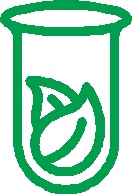 Science-Based Horticulture - September 17, 2014 Jeff Schalau, Agent, Agriculture & Natural Resources University of Arizona Cooperative Extension, Yavapai County This column focuses on science-based horticulture education and practices. It has done so for the past 17 years and past columns are archived on-line at the Backyard Gardener Website (see URL below). I develop my weekly topics through current events and communication with collaborators, Master Gardener volunteers, and Cooperative Extension Office clientele. Each subject is researched and written to describe scientific horticultural principles in a way that readers can understand and put to use in their daily lives. Scientific discovery is an iterative process that begins with the development of a hypothesis; proceeds with design and execution of unbiased experiments, and from there, results are published and disseminated. More experiments follow, and based on the results; theories are developed, disproved, or subjected to further investigation. Consumers are often bombarded with product marketing information that lacks or ignores the accepted and published scientific background information. Horticultural information and products touted by many “gardening experts” range from the occasional half-truth to barefaced fabrications. Take for instance the little brown bottle with a yellow label that is often next to the garden center checkout stand. This product (which I am purposely not naming) claims to contain “vitamins”, yet no ingredients except Vitamin B-1 are listed on the product label. The claims and testimonials abound, yet there is no peer-reviewed research substantiating these claims. By the way, I wrote about Vitamin B-1 in my March 26, 2008 column – it has little, if any, effect on reducing transplant shock or stimulating root growth after planting. It’s just one of many garden myths. Many other horticultural products include claims about growth, disease resistance, increased bearing, improved water use efficiency, etc. Some of these claims are valid – others are questionable. Beware of products making claims that sound too good to be true. Some other products to be wary of include: hydrogels, mycorrhizal soil additives, aerated compost teas, tree sealants/paints, and electronic gopher repelling devices. Understanding how a plant adapts and responds to its environment is crucial in making garden and landscape management decisions. We should all critically assess the “bill of goods” being sold and base our decisions on science rather than product claims or “expert” testimony. To that end, I invite readers to attend the Arizona Highlands Garden Conference that will be held at the Prescott Resort on October 25, 2014. This conference is planned and organized by Yavapai County Master Gardeners and will feature knowledgeable speakers providing scientific gardening information. Our Keynote Speaker will be Dr. Jeff Gillman. Jeff is a former Extension Horticulture Specialist from the University of Minnesota. He is well known for dispelling garden myths, teaching gardeners to rely on science, and encouraging them to conduct their own experiments. Jeff will give two presentations at the conference: The Truth About Organic Gardening and The Truth About Garden Remedies. Other conference speakers include: Wayne Ranney, Northern Arizona geologist and author discussing geologic changes to our local area over geologic time; Eric Moore from Jay’s Bird Barn will cover attracting hummingbirds with landscape plants; Stephen Scott of Terroir Seeds will discuss growing milkweed to provide habitat for migrating monarch butterflies; Landscape Architect, Steve Morgan, will present on landscape design using native plants. Other session topics include how to extend your vegetable growing season, Northern Arizona tree insects and diseases, and historic gardening and horticulture in Northern Arizona. Conference registration is $75 (before September 24) and $100 thereafter. Advanced registration is required and registration is closed after October 14. There will also be pre-conference activities available for a small fee on October 24. Registration information, schedules, lodging information and more are available at www.AHGC2014.org. I hope you can join us! Follow the Backyard Gardener on Twitter – use the link on the BYG website. If you have other gardening questions, call the Master Gardener help line in the Camp Verde office at 928-554-8999 Ext. 3 or e-mail us at verdevalleymg@gmail.com and be sure to include your name, address and phone number. Find past Backyard Gardener columns or provide feedback at the Backyard Gardener web site: http://cals.arizona.edu/yavapai/anr/hort/byg/. |